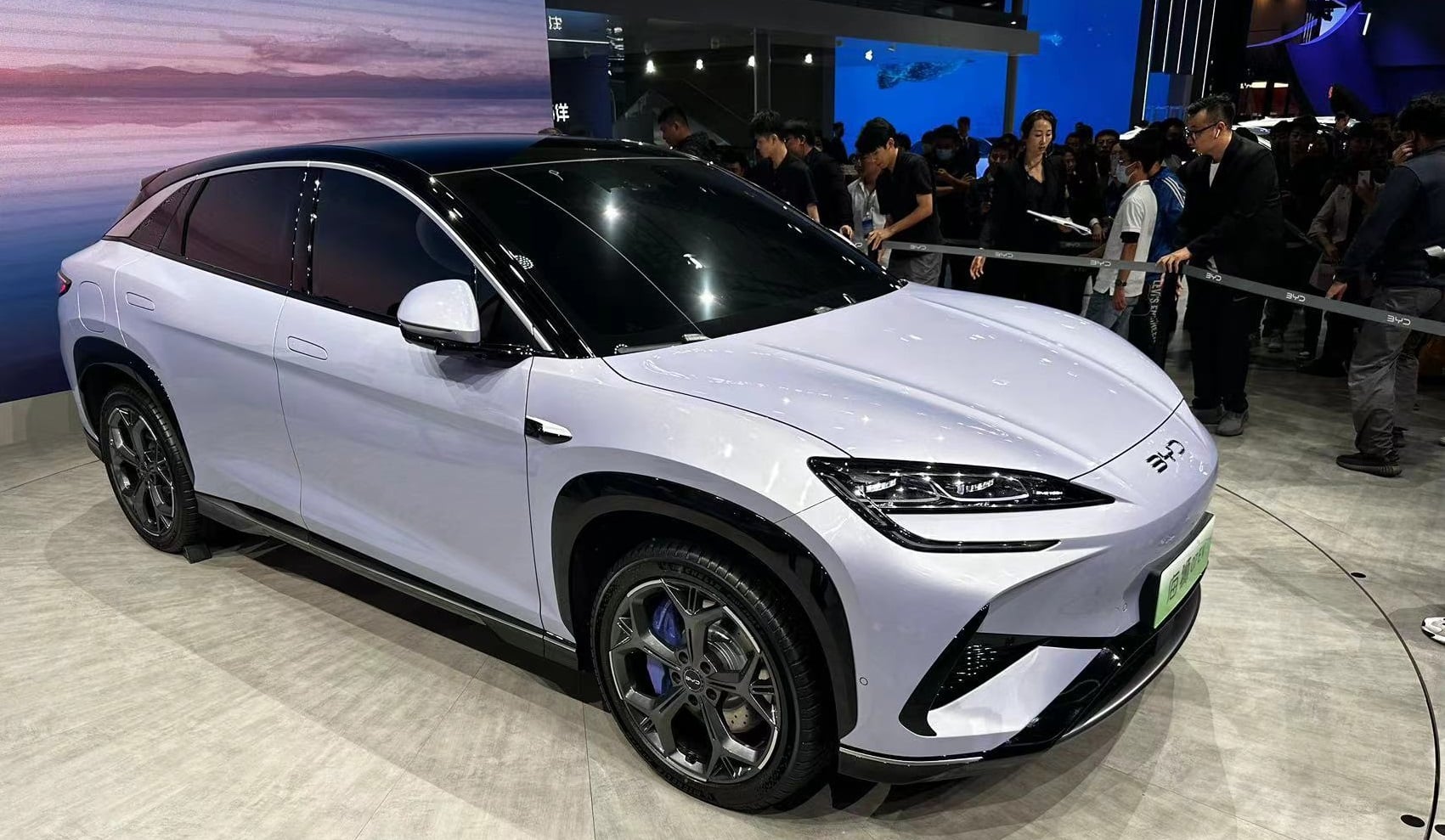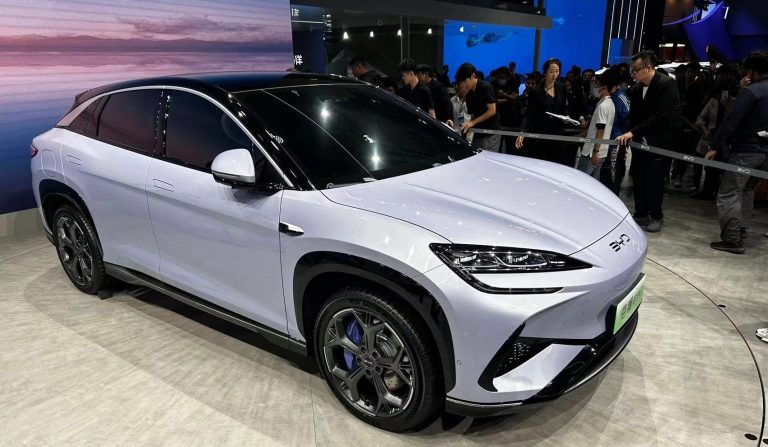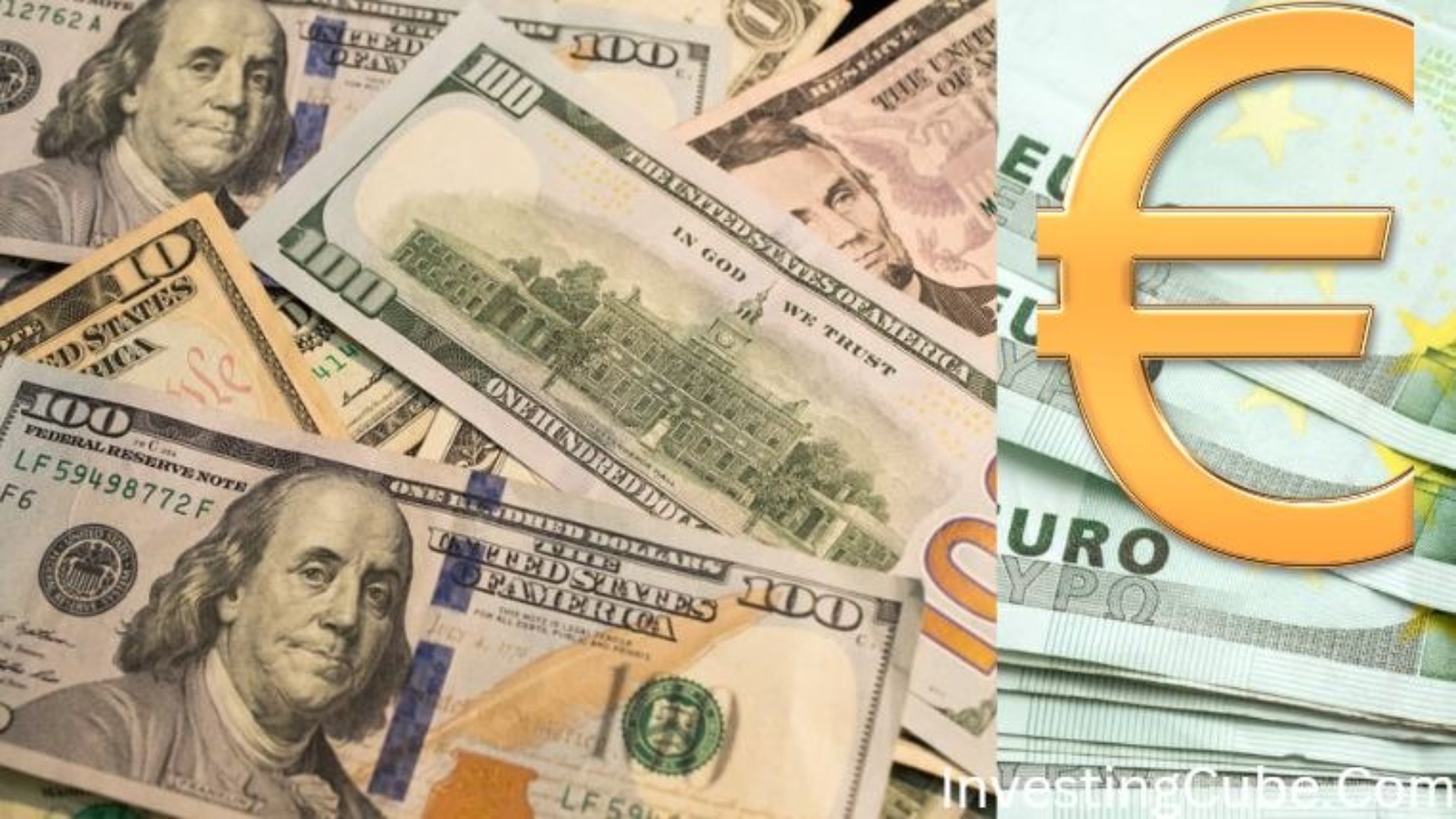BYD’s 880% Sales Surge in the U.K. Caps Chinese EVs’ Strong Push into Europe Amid U.S. Restrictions


Chinese electric carmaker BYD has reported a stunning 880% year-on-year growth in U.K. sales, marking one of the most aggressive expansions by a Chinese automaker in Europe at a time when U.S. restrictions continue to block Beijing’s EV and autonomous-driving ambitions from entering the American market.
According to Reuters, the company sold 11,271 cars in the U.K. last month, bringing its total for the year to just over 35,000 vehicles, making Britain its largest market outside China. That figure translates into a 2.2% market share year-to-date. Once a mobile phone manufacturer, BYD has reinvented itself into a dominant global EV player known for its affordability — with models like the BYD Dolphin starting at just over £26,000 ($34,913), compared to Tesla’s Model 3 priced around £40,000.
The company said its hybrid SEAL U DM-i and electric SEALION 7 were the best performers in the U.K., while its newly opened battery facility in the country is helping service electric buses — a segment in which BYD already holds a commanding presence across Europe.
Register for Tekedia Mini-MBA edition 18 (Sep 15 – Dec 6, 2025): registration continues.
Tekedia AI in Business Masterclass opens registrations.
Join Tekedia Capital Syndicate and co-invest in great global startups.
Register for Tekedia AI Lab: From Technical Design to Deployment.
The U.K.’s EV market itself has seen renewed momentum after the government reintroduced an electric car grant in July, pushing September’s battery-electric sales up 29.1% year-on-year to 72,779 units, according to the Society of Motor Manufacturers and Traders. Notably, the grant excluded Chinese EVs, underscoring a growing European tension over Beijing’s dominance in the electric and autonomous vehicle sector.
However, BYD’s European performance remains striking. Sales across the continent were up over 200% year-on-year as of August, according to the European Automobile Manufacturers Association (ACEA), outpacing Tesla, whose European sales slumped over 36% in the same period. However, BYD last week recorded its first year-on-year decline in global deliveries in 2025, with a nearly 6% drop, signaling that domestic competition in China’s overcrowded market may be beginning to weigh on exports.
BYD’s stock fell 1.3% in Hong Kong trading on Monday.

While BYD continues to gain ground in Europe, its access to the U.S. market remains effectively sealed off under Washington’s trade and national-security restrictions. That has pushed a wave of Chinese EV and autonomous driving technology firms — including QCraft, Momenta, DeepRoute.ai, and WeRide — to establish a strong foothold in Europe. Many are setting up headquarters, striking partnerships with automakers, and testing self-driving systems on European roads.
Executives at several of these companies say Europe offers a far more open regulatory environment compared to the U.S., where national security concerns have led to sweeping restrictions on Chinese connected-car technology.
“We’re focusing on Europe for our global future,” said Dong Li, chief technology officer of QCraft, which recently announced a new German headquarters. “There are barriers in the U.S. market,” he added, referring to data collection concerns that have made Washington wary of Chinese AI and automotive systems.

Momenta, one of China’s leading autonomous driving developers, has already partnered with Uber to begin testing Level-4 technology in Germany next year. The company also supplies driver-assistance systems to Toyota and General Motors and recently announced a deal with Mercedes-Benz to equip its electric CLA sedan with the same technology in China, now under testing in Europe as well.
Deeproute.ai and WeRide are pursuing similar expansion paths, developing high-level autonomous systems for automakers in both Asia and Europe. Analysts at research firm AlixPartners say these companies are replicating the same growth strategy that made Chinese EV makers formidable global competitors — undercutting rivals on cost and accelerating innovation cycles.
“Investors expect growth,” said Yvette Zhang, an automotive consultant with AlixPartners. “They are looking for other markets to grow.”
European startups, meanwhile, are torn between protectionism and open-market collaboration. While some executives have called for tighter oversight and subsidies to protect domestic industries, others — like Wayve CEO Alex Kendall — believe competition from China will drive innovation.
“Even if you’re in some subset of the world, there’s acres of space to grow,” Kendall said.
European Commission President Ursula von der Leyen recently acknowledged that the continent is trailing both the U.S. and China in autonomous vehicle development, urging member states to unify regulatory frameworks. Germany and Britain remain the only major European markets allowing limited Level-3 or Level-4 testing, as Brussels moves to harmonize fragmented national rules.
Berlin-based startup Vay, which is testing remote-driven car services, believes Chinese competition could accelerate this effort.
“It will force European players to sharpen their strategies very quickly,” said Fabrizio Scelsi, Vay’s co-founder.
For Beijing, Europe has become the centerpiece of its automotive global strategy — a crucial counterweight to U.S. restrictions. As Tu Le of Sino Auto Insights put it, “Europe is the only market they can come to. They have to make their move.”





